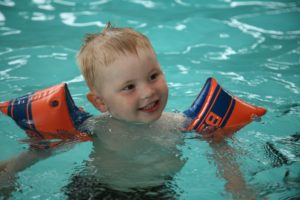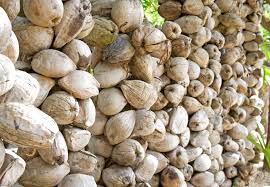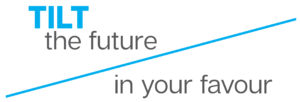24 Jun Natural water wings
Ever wonder what we did before plastic? For instance, have you ever thought of those bright orange water wings that most children use when learning to swim? What did they use before plastic?
The Feast of St John the Baptist, ‘San Joao’
This week, my village celebrates the Feast of St John the Baptist with a traditional dunking in the wells which would recently have been replenished by the monsoon rains.
After the long hard dry heat of the summer, most wells in the village would be dry, or down to their last foot of water if they are lucky to be fed by a spring.
Then comes the angry clouds, spitting gigantic water beads of rain and soaking the parched earth. Gradually the aquifers are replenished, feeding into the many local wells. By the time we get to late June, most of the wells are full to overflowing with water, ready with their reservoir for the coming year.
In a time before swimming pools, this is where we learned to swim – in a 5×5 foot square well, 25 feet deep.
It is nothing but deep end.
Water wings
I learned to swim in the tradition of my mother, father, and generations before them.
As a child, they would tie a few dried out buoyant coconuts to your arms, with coir (strong rope made from the husk of the coconut). With the strong support of a fellow family member already in the water, in you would go with the instruction to start kicking hard as soon as you hit the water. The buoyant coconuts would quickly pull our little bodies back up to the surface.
And that is how I learned to swim. No plastic water wings.
Less plastic. No plastic.
This came to mind as I was pleased to read about 3 major supermarket chains in the UK who are trialing ideas to reduce their use of plastic packaging by 2025, especially for fresh fruit and vegetables.
This was welcome news as it shows that there is a movement pushing for attention to the way we shop and live on this earth.
In our family, we are already making small daily decisions that reduce our consumption of plastic. Now we pack a reusable grocery bag each time we pick up the car keys so that we have one less excuse to buy a one-use bag.
And we brainstormed various ideas at the breakfast table on what natural products could provide the same functionality of protecting produce from farm to table, without straining the earth’s resources. Could we use biodegradable plastic that comes home and does double duty as a compostable bag for your food scraps? Is paper the answer?
The monsoons are late
As I attempted bullet 2 of my daily commitment, it was distressing to learn that the monsoons are late this year. Each year, millions of people listen for the croaking of the frogs or a heavy breeze – any indication that the rains are coming to break the oppressive heat that assaults them. This year, the rains have yet to start. There is a severe drought affecting many cities in India. Villages have little water and people are fleeing their homes.
World Economic Forum link to article: This city is running out of water
What I am doing, daily:
- Making a single climate-related decision or action, daily. (More ideas in upcoming podcasts)
- Learning something new about the urgency – via blogs, conversations, new technology. Today it is the WEF article on the impact of the late monsoons on states in India.
- Talking to people around me about the urgency. Sharing stories about resourcefulness. Showing curiosity.
- Actively discussing the many opportunities to figure out a solution.
Then repeat tomorrow.
Today’s podcast episode:
When we talk about cycles of nature, discuss how climate change is impacting historic weather patterns and its ripple effect on communities around the world, we raise awareness.
Will you join me?
CREDIT & THANKS; DEFINITIONS & RESOURCES:
- Inspiration & Motivation:
- Applauding the decision of UK grocery stores to move away from plastic packaging for fruit and vegetables
- The festival of San Joao in Goa
- A history of plastic: https://www.bbc.com/news/business-47161379
- TILT the Future – my new podcast discusses how little ideas, small shifts and minute moments can result in monumental changes in our lives https://karenadesouza.com/blog/
- GenZ, Gen Z, Generation Z – if you were born in 1995 or after. You are usually a digital native, having no memory of a world without the internet!
- Daily challenges – TTFT, Video and writing challenges
- Find a version of this thought for today article on LinkedIn and Instagram
- Photo, audio & video credits: Headliner app, Canva, Simplecast, creator Karena de Souza
- TILT the Future Podcast: Producer, content creation – Karena de Souza; hosted on Simplecast
- Photo: Image by Ingerr free from Pixabay
- Photo: Wikimedia





No Comments